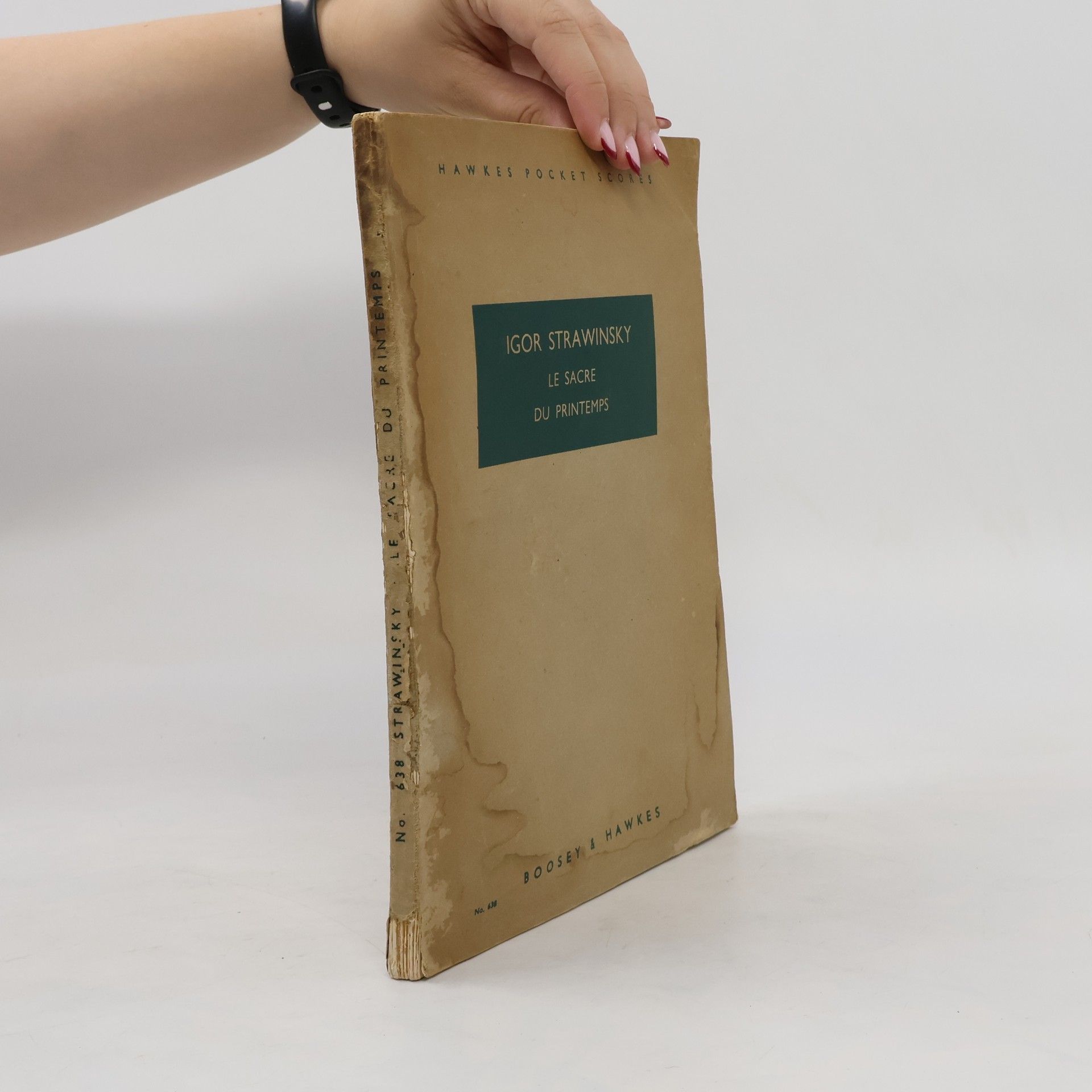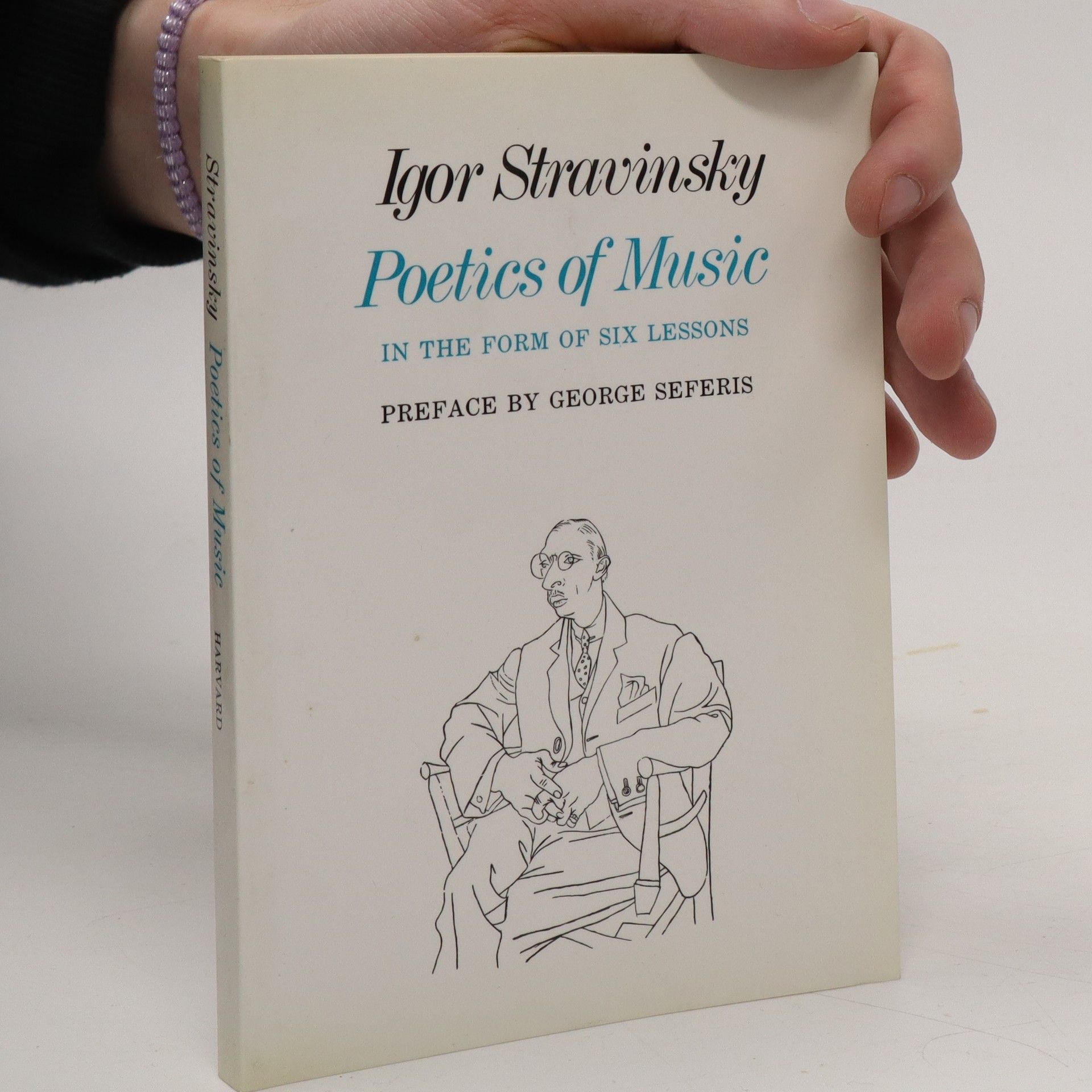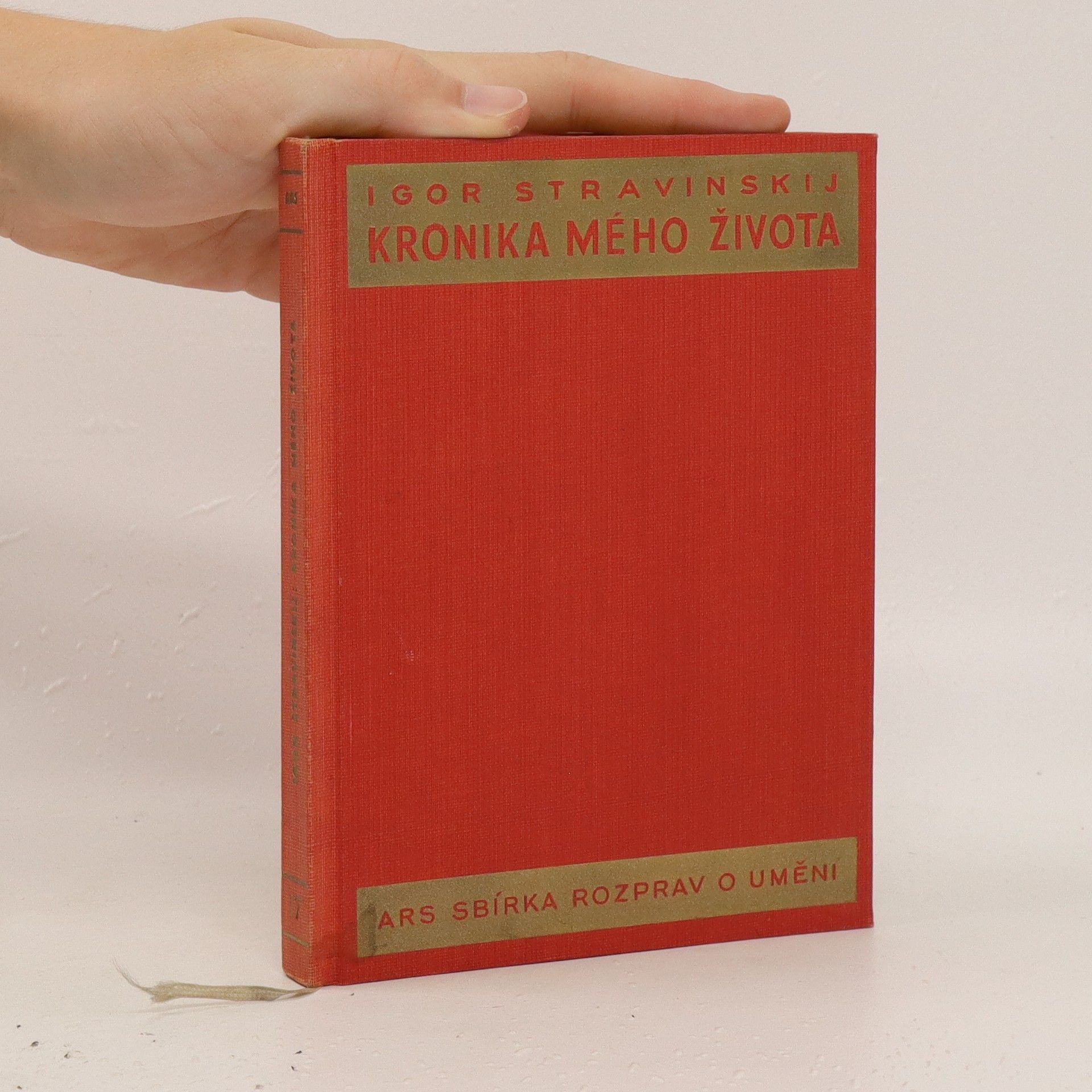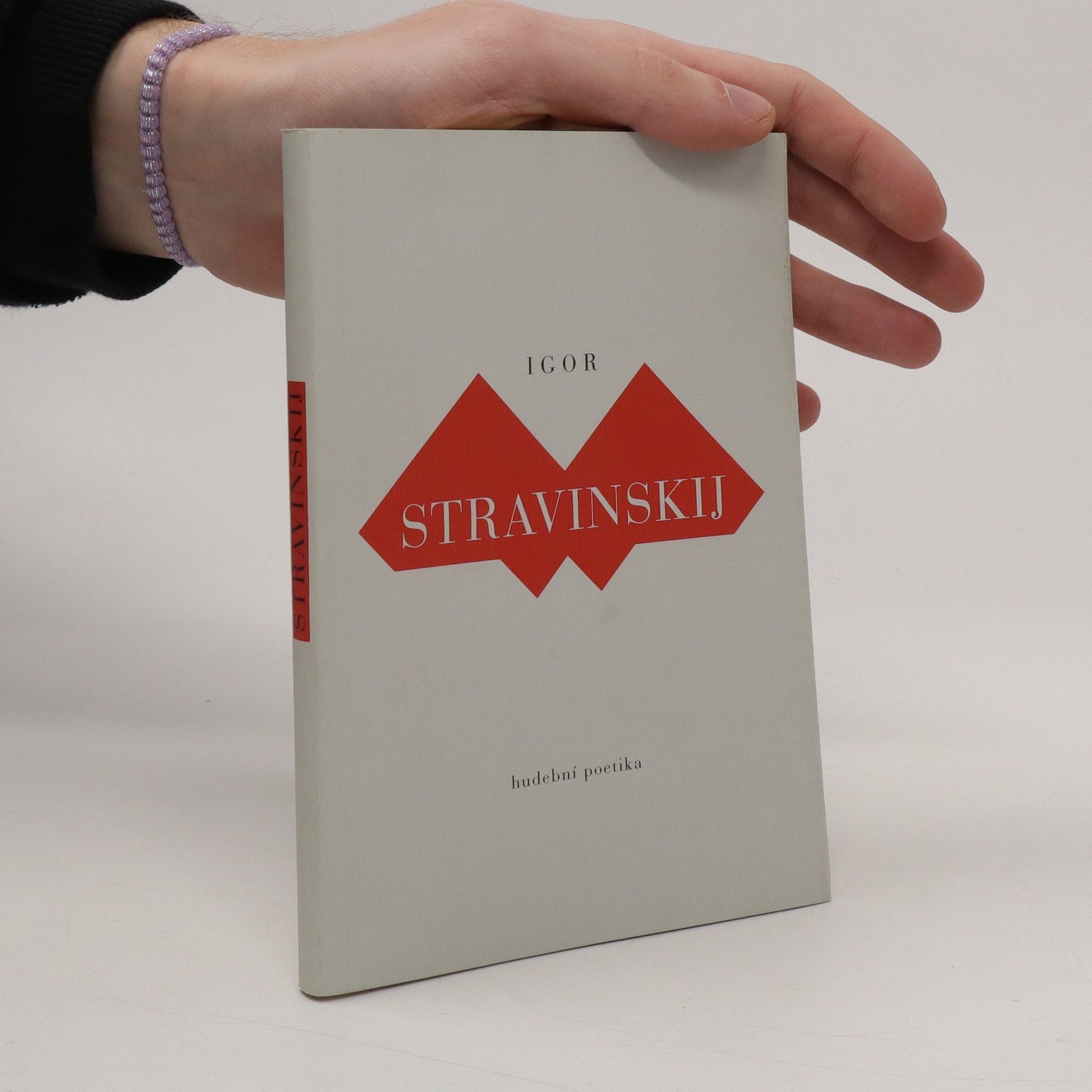Hudební poetika
- 116 stránek
- 5 hodin čtení
Autorovy přednášky pojednávají o fenoménu hudby, o jejím komponování, o hudební typologii, o proměnách ruské hudby ad.
Igor Stravinskij byl ruský skladatel, klavírista a dirigent, považovaný za jednoho z nejvýznamnějších a nejvlivnějších skladatelů 20. století. Jeho dílo je kosmopolitní a ovlivnilo hudební svět. Navzdory svému uznání za skladby se proslavil také jako klavírista a dirigent. Ve své autobiografii vyjádřil názor, že hudba sama o sobě nedokáže nic vyjádřit.







Autorovy přednášky pojednávají o fenoménu hudby, o jejím komponování, o hudební typologii, o proměnách ruské hudby ad.
Život a názory významného skladatele. Autobiografická publikace z poloviny 30. let 20. století.
Petruška, hadrový panáček, hraje v loutkovém divadle na jarmarce v Petrohradě podle záměru nehodného loutkáře úlohu šaška pro zábavu publika, ačkoli se mu líbí balerína Holubička, jež tančí s Mouřenínem. Petruškova vzpoura proti tomuto osudu končí jeho smrtí. Ale umírá jen jeho hadrové tělo a jeho duch jako symbol odporu proti zvůli a násilí žije dál.
One of the greatest of contemporary composers has here set down in delightfully personal fashion his general ideas about music and some accounts of his own experience as a composer. Every concert-goer and lover of music will take keen pleasure in his notes about the essential features of music, the process of musical composition, inspiration, musical types, and musical execution. Throughout the volume are to he found trenchant comments on such subjects as Wagnerism, the operas of Verdi, musical taste, musical snobbery, the influence of political ideas on Russian music under the Soviets, musical improvisation as opposed to musical construction, the nature of melody, and the function of the critic of music. Musical people of every sort will welcome this first presentation in English of an unusually interesting book.
Opera in three acts. HPS 739. Soli, Chor und Orchester. Studienpartitur.
The narrative follows the tragic and ironic journey of a wealthy heir, who descends into debt, madness, and ultimately death, inspired by a 1947 exhibition of William Hogarth's prints. The libretto by W. H. Auden and C. Kallman weaves together elements from classical pastoral, the Faust legend, fairy tales, circus, and biblical stories. Igor Stravinsky's music brilliantly integrates influences from the operatic canon, creating a unique work that transcends parody or imitation. This opera remains a significant piece of the 20th-century repertoire.